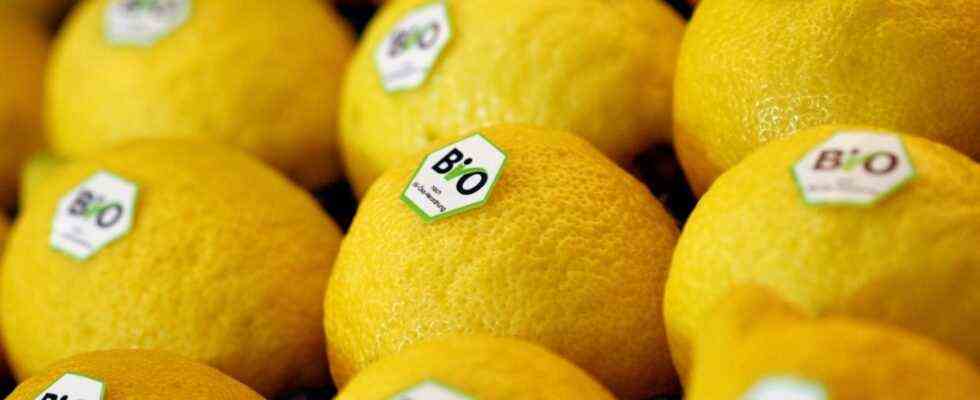Certificates and seals are intended to create trust in consumer goods, especially food. Their number has increased steadily over the past few years. You should evaluate products independently. Depending on the orientation, the focus is on the degree of organic farming, fair trade, sustainable fishing or the type of animal husbandry. Not all seals apply the same standards. A seal that proves certain criteria is better than none at all. But as a consumer you can quickly lose track of things.
For those producers who meet the highest standards, this can also be an expensive nuisance because their products compete on the market with offers that do not meet their requirements. The beer and soft drinks manufacturer Lammsbräu, for example, took legal action against the food giant Danone because it had adorned one of its mineral waters with the term “organic”. The responsible institute would adapt the certification to its customers, was Lammsbräu’s allegation.
In the first instance, the Upper Palatinate lost, but the Frankfurt Higher Regional Court examined the judgment and came to the opposite conclusion in April of this year. Among other things, Danone is no longer allowed to describe its mineral water as mineral water in organic quality or even “premium mineral water in organic quality”.
Sustainable food production is becoming more and more attractive, especially for medium-sized companies, because banks are increasingly offering better financing options. On the one hand, the banks are under closer scrutiny by investors for whom sustainability is important. On the other hand, they must fear that future state regulations will reduce the lucrative value of less sustainable business models. Accordingly, they balance their lending and develop a greater willingness to promote sustainable companies more strongly.
Eggs from the organic supermarket. Certified products are popular with consumers.
(Photo: Johannes Simon)
Seals are not always a guarantee for sustainable products; consumers should also remain critical when it comes to labeled products. It is always advisable to take a look at the list of ingredients or the indications of origin. However, seals and logos can provide orientation and help consumers choose products.
The German organic seal
The hexagonal German organic seal with a light green border says that food consists of at least 95 percent organically produced raw materials and does not contain any artificial flavors, colors or flavor enhancers. Cattle for slaughter receive only organic feed and must be kept as appropriate to their species as possible. Antibiotics are only allowed to a limited extent during rearing. The EU organic label largely meets the same standards.
Bioland, Naturland, Ecovin, Bio Kreis
The German organic associations apply even stricter requirements when awarding their certificates. These include Bioland, Naturland, Ecovin and Bio Kreis. The Bund für Umwelt und Naturschutz Deutschland, Bund, recommends purchasing these products. Organic seals from discounters such as Lidl (Bioness), Real (Real-Bio), Aldi Nord (PrimaBio) or Rewe (ReweBio) meet lower standards.
Type of housing
Meanwhile, consumers trust the still young certificate for keeping form, which was introduced at the beginning of 2019. It is divided into four levels, with level four being the best possible for animal welfare. In a Forsa survey, 92 percent of consumers rated the seal as good or very good.
MSC, ASC, Friend of the Sea
When it comes to fishing, the MSC, ASC or Friend of the Sea certificates are intended to provide clarity. The Naturschutzbund Deutschland gives all seals the grade good, but calls for improvements. The founding of the ASC was once shaped by the influence of many interest groups. Today, however, it is an independent organization. MSC lives mainly from certification fees, criticizes the environmental organization Greenpeace, among others. Nevertheless, the seals are seen as steps in the right direction. Naturland certification, on the other hand, creates even greater transparency when buying fish.
Naturland Fair, Rapunzel Naturkost, Demeter, Bioland
The Naturland Fair seal, which combines sustainability and fair trade, also meets the highest standards. The same applies to the hand-in-hand seal of the organization Rapunzel Naturkost, which supports hundreds of social projects and initiatives. Demeter has also been one of the strictest certifiers of sustainable agriculture for years. Bioland also gets very good reviews with few drawbacks.

